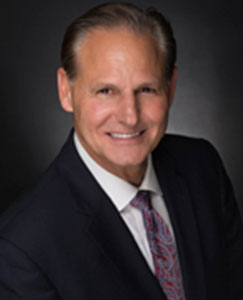The Future of Healthcare Software-as-a-Service: Strategies and Market Growth Forecast to 2034

The Future of Healthcare Software-as-a-Service: Strategies and Market Growth Forecast to 2034
By Gary L Bozza, CEO of WorldBridge Partners
With over 26 years in executive search, I have witnessed a profound shift in the way we work, as remote and distributed workforce models gain momentum across various industries. As the CEO of WorldBridge Partners, an award-winning national recruiting firm, I have personally experienced the impact of this transformation on our clients and staff. In this article, I will share my insights on the concept of remote and distributed workforce, its advantages, and challenges, and how it is shaping the future of work.
The Healthcare Software-as-a-Service (SaaS) market is undergoing a significant transformation, fueled by the increasing adoption of cloud-based solutions, advancements in artificial intelligence (AI), and the growing need for scalable and cost-effective healthcare IT infrastructure. As healthcare providers seek to enhance efficiency and patient care, SaaS-based solutions have emerged as a crucial driver in modernizing healthcare systems worldwide. This article explores the key growth factors, emerging trends, challenges, and strategic opportunities that will shape the healthcare SaaS market through 2034.
Key Growth Drivers of the Healthcare SaaS Market
1. Cloud Adoption and Digital Transformation
With the shift from traditional on-premise software to cloud-based platforms, healthcare organizations can access, store, and manage patient data more efficiently. SaaS solutions provide flexibility, scalability, and cost reductions, making them an attractive option for healthcare providers of all sizes.
2. Artificial Intelligence and Big Data Integration
Integrating AI and big data analytics into SaaS platforms revolutionize healthcare. AI-powered SaaS applications assist in predictive analytics, patient diagnosis, and treatment planning, significantly improving clinical decision-making and operational efficiency.
3. Telemedicine and Remote Patient Monitoring
The rising demand for telemedicine and remote healthcare services has accelerated the adoption of SaaS solutions. Cloud-based telehealth platforms enable healthcare professionals to provide virtual consultations, monitor patients remotely, and manage chronic conditions effectively.
4. Increasing Government Initiatives and Regulations
Governments worldwide are actively promoting digital healthcare transformation through policies and financial incentives. Compliance with regulations like HIPAA (Health Insurance Portability and Accountability Act) and GDPR (General Data Protection Regulation) encourages healthcare providers to implement secure and compliant SaaS solutions.
5. Demand for Interoperability and Integrated Systems
Modern healthcare systems require seamless integration between Electronic Health Records (EHR), patient management systems, and insurance databases. SaaS platforms support interoperability, ensuring smooth data exchange across healthcare applications and institutions.
Emerging Trends Shaping the Future of Healthcare SaaS
- Personalized Healthcare Solutions: AI-driven SaaS solutions enabling customized treatment plans based on a patient's medical history, genetic data, and real-time health metrics.
- Blockchain for Secure Data Management: Adopting blockchain technology within SaaS applications enhances patient record security, transparency, and traceability.
- Subscription-Based and Pay-Per-Use Models: SaaS providers offer flexible prices to make healthcare IT solutions more accessible to small and mid-sized healthcare providers.
- Enhanced Cybersecurity Measures: With growing cyber threats in healthcare, SaaS vendors are investing in advanced security frameworks to protect sensitive patient data from breaches and cyberattacks.
Challenges Hindering Market Growth
Despite its promising growth, the healthcare SaaS market faces several challenges:
- Data Security and Privacy Concerns: Patient data confidentiality remains a top priority as cyberattacks on healthcare institutions increase.
- Regulatory Compliance Complexities: SaaS vendors must continually update their solutions to meet evolving healthcare regulations across different regions.
- High Initial Implementation Costs: While SaaS reduces long-term costs, the initial deployment, staff training, and integration with existing systems can be costly.
- Resistance to Technological Change: Some healthcare providers, especially smaller clinics, hesitate to transition from legacy systems to cloud-based solutions.
Future Strategies for Market Expansion
To capitalize on the growing demand for SaaS solutions in healthcare, industry players must adopt strategic approaches, including:
- Enhancing AI and Automation Capabilities—AI-driven automation can streamline administrative tasks, reducing healthcare professionals' workload and improving efficiency.
- Developing Scalable and Customizable Solutions - Offering tailored SaaS solutions that cater to the specific needs of hospitals, clinics, and specialized healthcare facilities.
- Fostering Strategic Partnerships - Collaborations between SaaS providers, healthcare institutions, and technology firms will accelerate market adoption and improve interoperability.
- Ensuring Regulatory Compliance and Data Security - Investing in robust cybersecurity measures and ensuring regional and international healthcare regulation compliance.
- Expanding into Emerging Markets - The rising adoption of healthcare IT solutions in developing countries presents significant growth opportunities for SaaS vendors.
Conclusion
The healthcare SaaS market is on an upward trajectory, with continuous advancements in cloud computing, AI, and telemedicine driving its expansion. While challenges such as data security, compliance, and implementation costs persist, proactive strategies can help businesses navigate these obstacles effectively. By focusing on innovation, security, and interoperability, SaaS providers can unlock new opportunities and revolutionize healthcare IT by 2034.

Gary Bozza opened the doors of WorldBridge Partners Chicago NW in 1997. Recognized for his ability to get results, he has been building real world leadership teams for four decades on both sides of the hiring process. Gary’s practice is dedicated to helping Owners, CEOs, Presidents, and Private Equity Firms drive revenue and maximize the effectiveness of human capital resources, while building enterprise value. In 2023, WorldBridge Partners was awarded “America’s Best Executive Recruiting Firm” by Forbes for the 4th consecutive year.
Contact Gary today at (847) 550-1300 ext. 33 or garyb@worldbridgepartners.com
